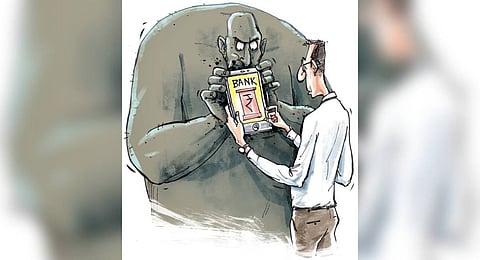

CHENNAI: Two money mules have been arrested in a case where a civil engineer from Mangadu was duped of Rs 1.56 crore in an online trading scam. The cybercrime wing of the Avadi Central Crime Branch (CCB) said the two provided their bank accounts for the fraudulent transactions and for transferring the money abroad. Police have arrested A Ajith Kumar (29) of Sivagangai and P Prakash (41) of Puducherry, and are investigating the money trail to identify the masterminds.
According to police sources, the victim, Jayaraman (55), received a WhatsApp advertisement last June promoting online trading with assured 100% profit. After responding to the message, he was added to a group on the platform.
“There were more than a hundred members in the group, and many of them were posting messages about getting high returns for their investment. A person in the group would instruct others on how to invest. Some of the members even messaged Jayaraman privately.
Believing it to be true, he started investing Rs 5,000, and until July 2024, he had invested Rs 1.56 crore. He would send the money to the bank account that was given in the group,” a police officer told TNIE.
Jayaraman realised he had been cheated when he was unable to transfer his displayed profits to his bank account and filed a police complaint in September.
“We traced the bank account to a fake company registered in Puducherry. The company and account were registered under Ajith Kumar, a Class X dropout, who was working at an eatery in Chennai. Jayaraman had deposited all his money into this bank account. It was then transferred to a bank account belonging to P Prakash (41) of Puducherry, who is a BA graduate,” the officer said.
Ajith and Prakash were reportedly recruited by a cybercrime gang to operate an office set up for the scam. Ajith received the victims’ funds in his account before transferring them to Prakash, who then moved the money abroad.
In the last year alone, Ajith had earned Rs 1.5 lakh as commission, while Prakash received Rs 1.1 lakh. A separate group was created for communicating with the victims, according to the police. Investigations are ongoing to determine how the money was converted and transferred abroad, as well as to identify others involved in the scam.